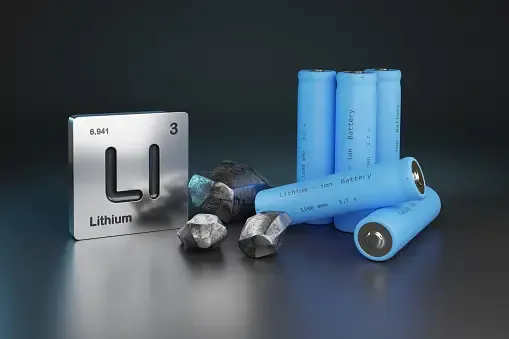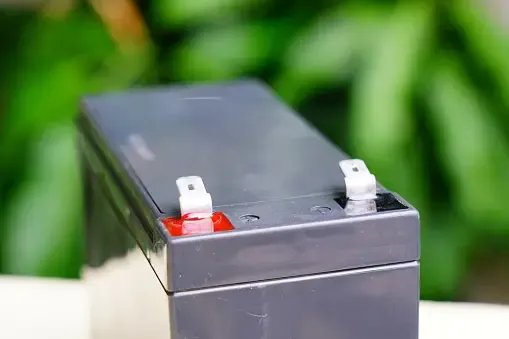
Lithium lon vs Lead Acid Batteries- Which One to Prefer?
Home energy storage systems can be set up with multiple types of batteries, with lithium ion batteries and lead acid batteries being the most famous options. Now the question is, which one is better?
In this article, we will dig deep into all the basic information while shedding light upon significant aspects such as main differences and performance evaluation to land an accurate and unbiased conclusion.
So, without any further discussion, let us dig deep into the content.
An unbiased analysis of Lithium Ion vs Lead acid batteries
What is a lithium ion battery?
The lithium ion battery ( Also known as the li-on battery) is a type of rechargeable battery that relies on the reversible intercalation of li-ons.
Such batteries are today significantly known for their grid-scale energy storage. In addition, the higher energy density, higher specific energy, and longer life cycle often characterize lithium ion batteries.
What is a lead acid battery?
Lead acid batteries are another type of rechargeable battery that relies on the lead dioxide plates connected to the sulfuric acid electrolyte for the storage of energy.
These were invented in 1859 by Gaston Plante and are known as one of the oldest types of rechargeable batteries around.
Lead acid batteries are commonly used in automatic applications such as SLI systems and lighting to ensure a constant supply of energy in situations of need. These are known for their reliability, cost-effectiveness, and robustness.
How do lithium batteries, and lead acid batteries work?
Both of the batteries store energy for later use through the process known as the Electrochemical.
They discharge positive and negative ions from the lithium between electrodes. Overall, the working style of lead acid batteries is almost similar to that of lithium iron, with one and the only difference being in the material used.
Cost of lithium ion and lead acid batteries
When talking about the cost, there are a few factors you must consider. The initial cost of lead acid batteries are lesser than the lithium ions ones.
That means, while a lithium ion battery might cost you hundreds and thousands of dollars for just an initial purchase, you can get a similarly sized and weight battery for way less price.
Nevertheless, when we talk about the long-term costs associated, lithium ion batteries surpass lead-ion ones. The lithium ion battery provides more cost efficiency in the overall lifetime through multiple factors like lower installation cost, energy efficiency, etc.
Plus, it provides more value for money through distributed features, including the building energy management system.
Energy efficiency
Energy efficiency in the battery's system refers to the duration of constant energy supply you can enjoy. The lithium ion batteries are proven to be 95 percent more efficient than lead acid. That means, 95 percent of the stored energy of the battery is usable while only 5 percent or even less goes to waste.
At the same time, the energy efficiency of lead acid batteries is somewhere between 80 to 85 percent or even less. It means that about 20 or more percent of the charged battery goes in vain.
The cycle life of batteries
Lithium batteries have a longer life cycle with a retaining rate of 80% of their total capacity after every 300 to 500 cycles of charging and recharging. No matter how extreme you use the battery, its strength against all odds remains resilient.
The situation plays a significant role in prolonging the lifespan of the battering while reducing the frequent replacement needs. Nevertheless, lead acid batteries have a really short life span.
It typically lasts only about 300 to 500 cycles or even less under some circumstances like excessive heat. It establishes such batteries only suitable for applications that don't require frequent deep discharges.
Maintenance requirements
The lead batteries need to be maintained and inspected regularly. For instance, you need to check its performance from time to time and top up the electrolyte levels when needed. In addition, you also must ensure proper charging practices.
At the same time, lithium ion batteries have very low maintenance requirements. That means you can still recharge a lithium ion battery even if some previous charging is left.
Safety
The lithium ion batteries are considered to be the safest types of batteries available out there. They have an extensive range of safety features ranging from the built-in protection circuit to the advanced energy distribution system.
The main aim is to protect the circuits from overcharging and discharging and stop the situation of short-circuiting before occurring. Nonetheless, lead acid batteries have multiple health risks due to the usage of corrosive sulfuric acid.
Sustainability
Lithium batteries have a much lower impact on environmental degradation in comparison to the other types. First of all, they are more energy efficient, use fewer toxic materials, and adhere to all the environmental laws.
Lead acid batteries have a higher effect on the environment as they contain sulfuric acid and lead, which are the biggest enemies of the environment. However, such batteries can be recycled to lower the risks of harmful chemicals penetrating the soil and harming life.
Which one should I prefer?
On the basis of the above analysis, it is better to go with lithium batteries as they are more cost-efficient, provide more value for money, have lesser environmental effects, etc.
Nevertheless, to ensure smooth usage and gain all the benefits, it is mandatory to purchase your battery from a trusted source.
Innotinum is a trusted name in the world of online battery sellers, which stands out of the composition with four years of experience and 100% track record of customer satisfaction.
They have multiple types of batteries to offer with distinguished capacities such as IES-H0, IES-H1 & IES-L0.
Conclusion
On the bottom line, Lithium Ion vs Lead acid batteries - which one to prefer is one of the most asked questions. To provide you with a satisfactory answer, we have formed this guide observing an unbiased analysis of both options.
So, make sure to read from start to end to land on an accurate conclusion and purchase the right option.


